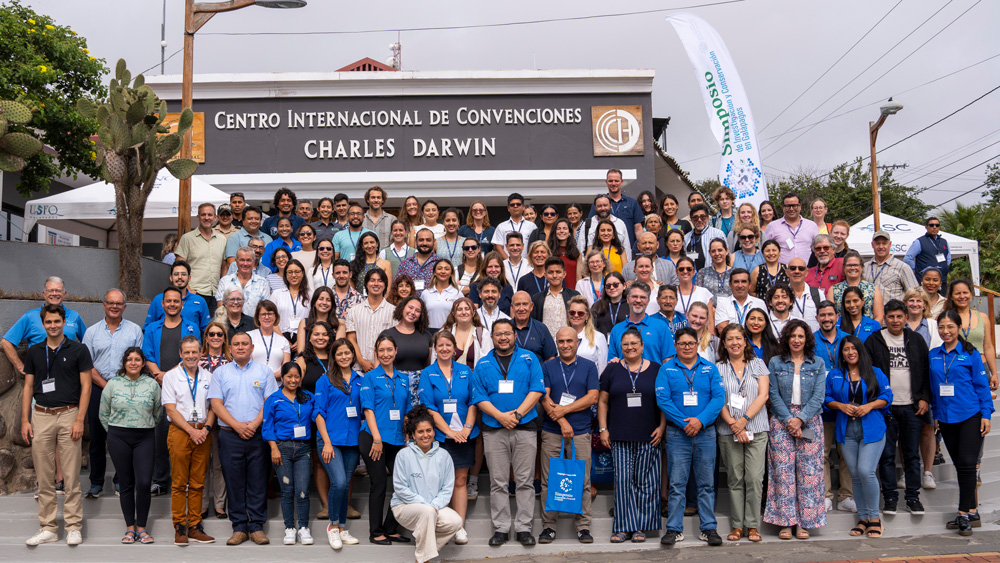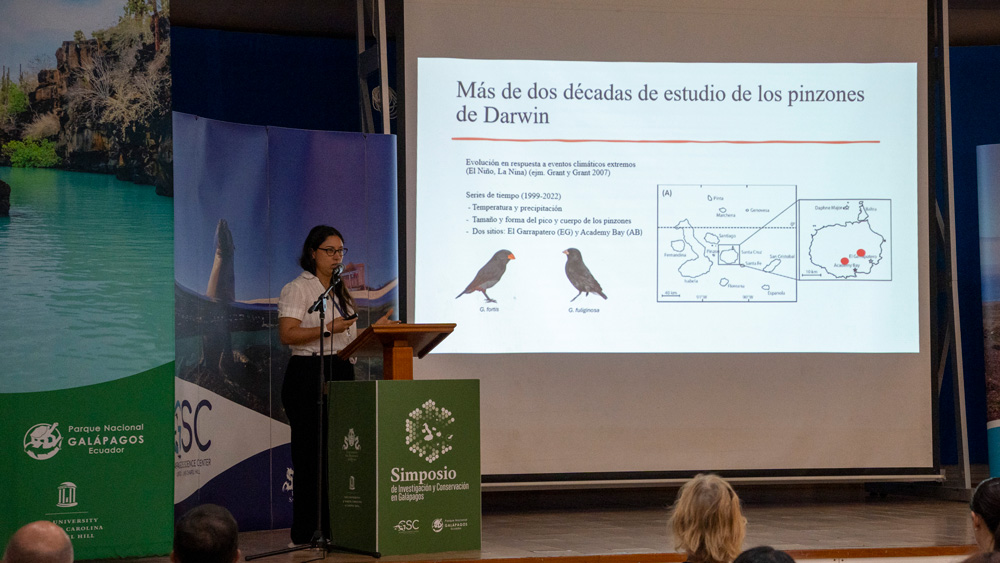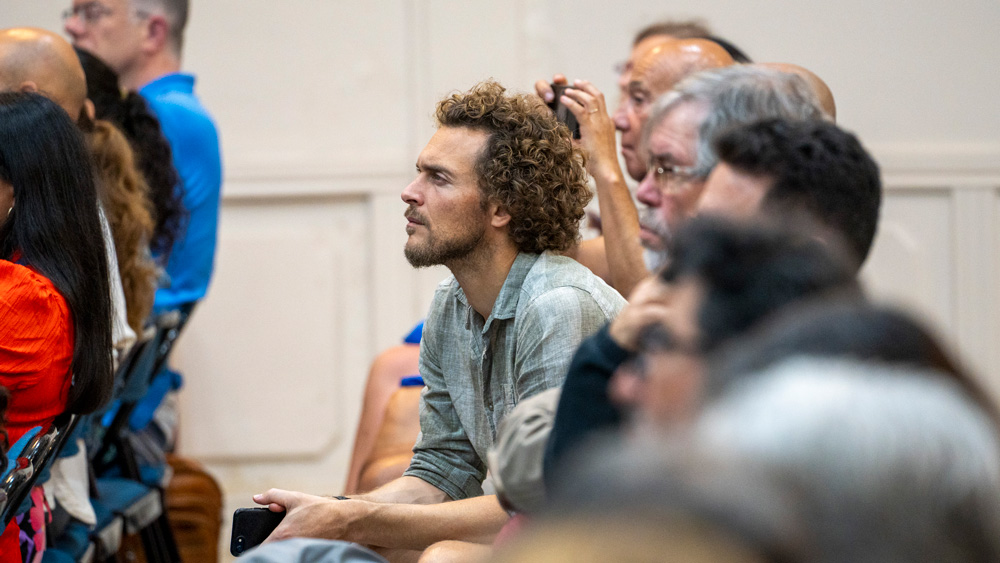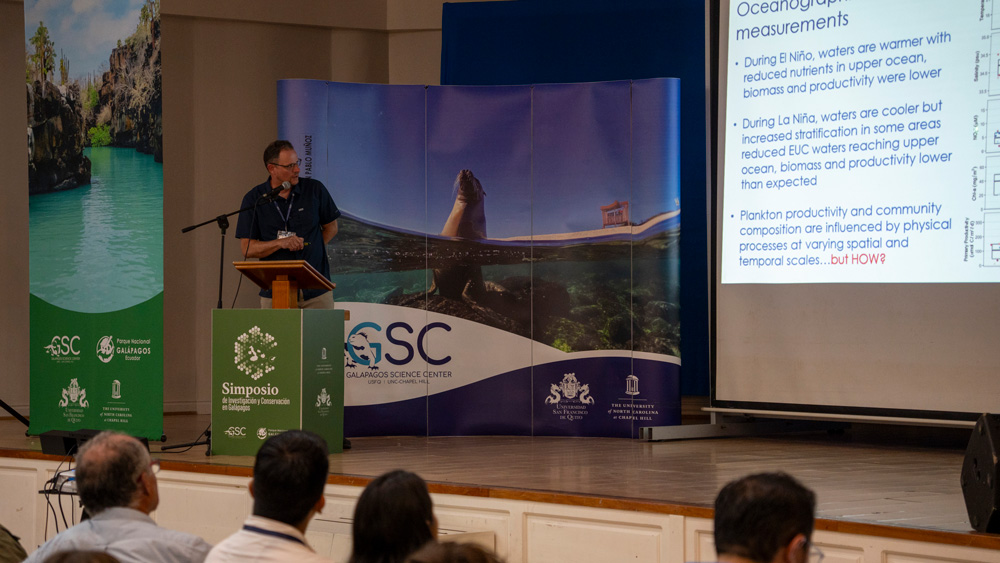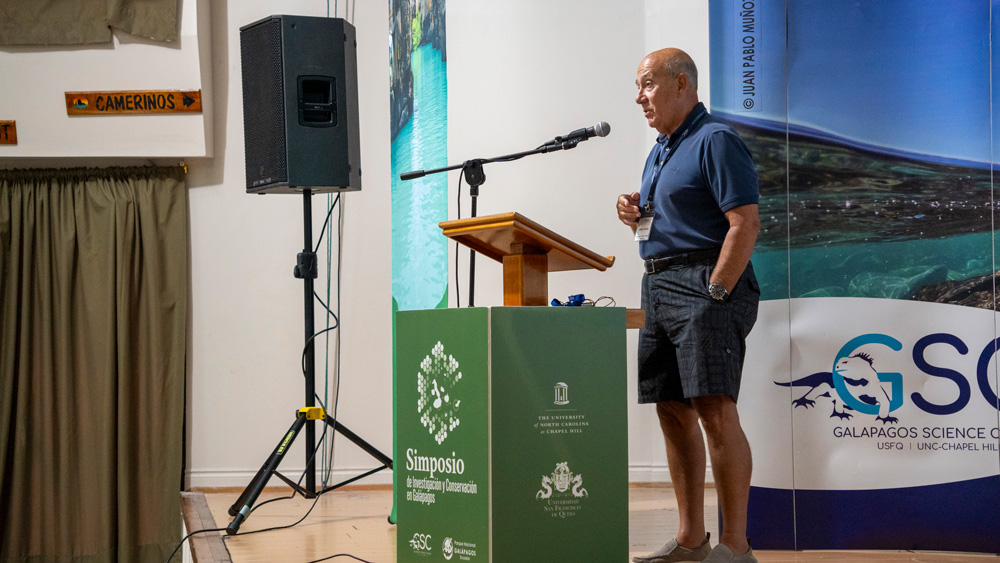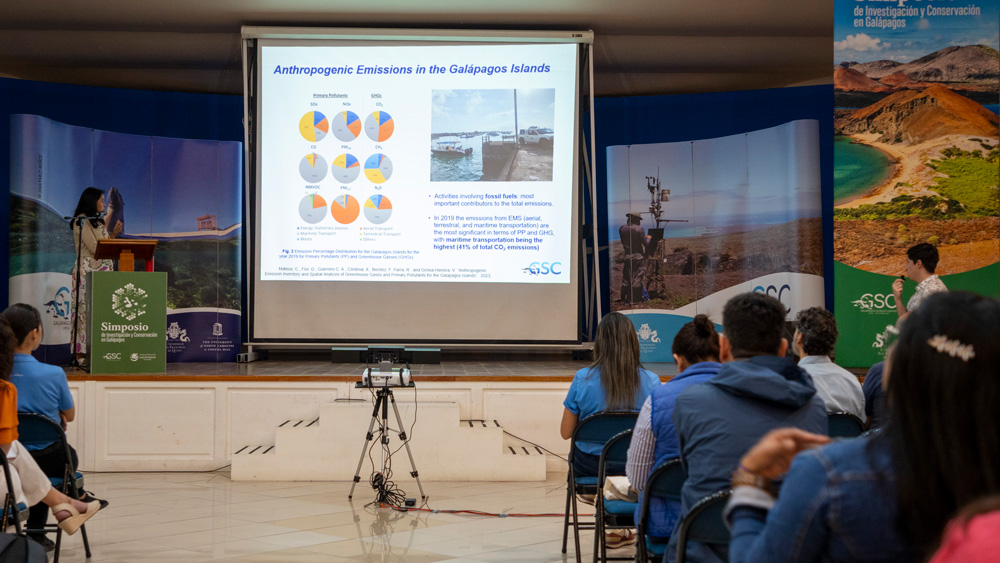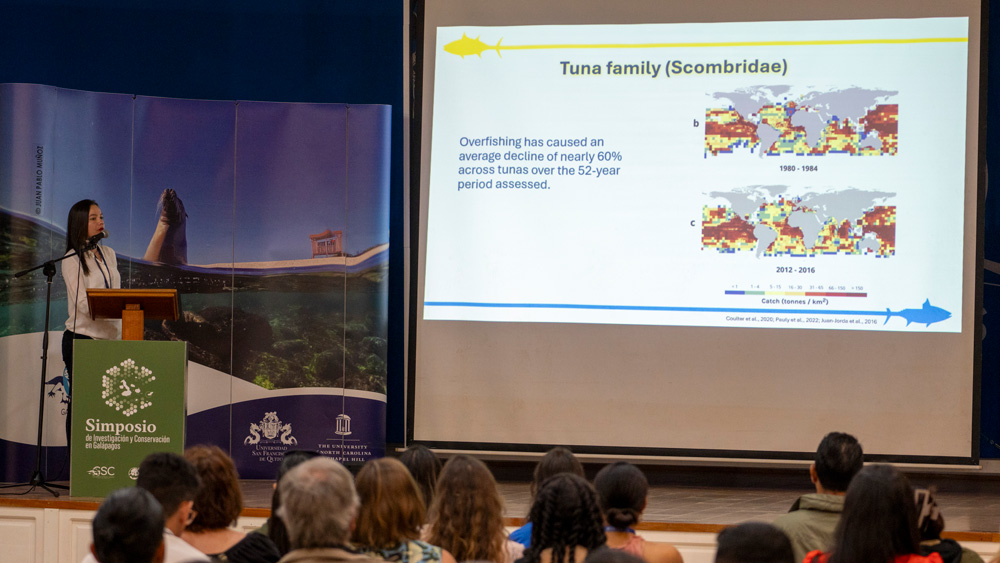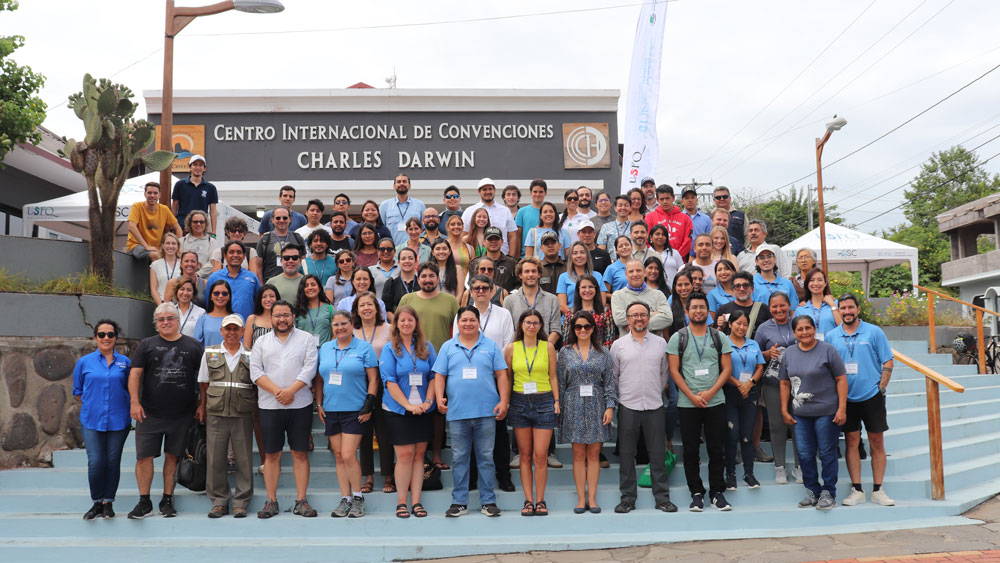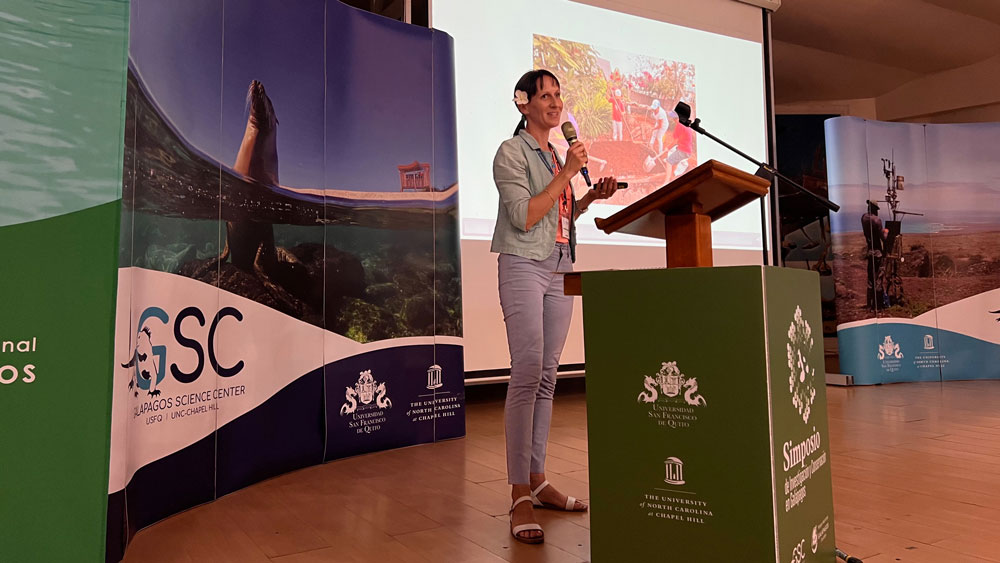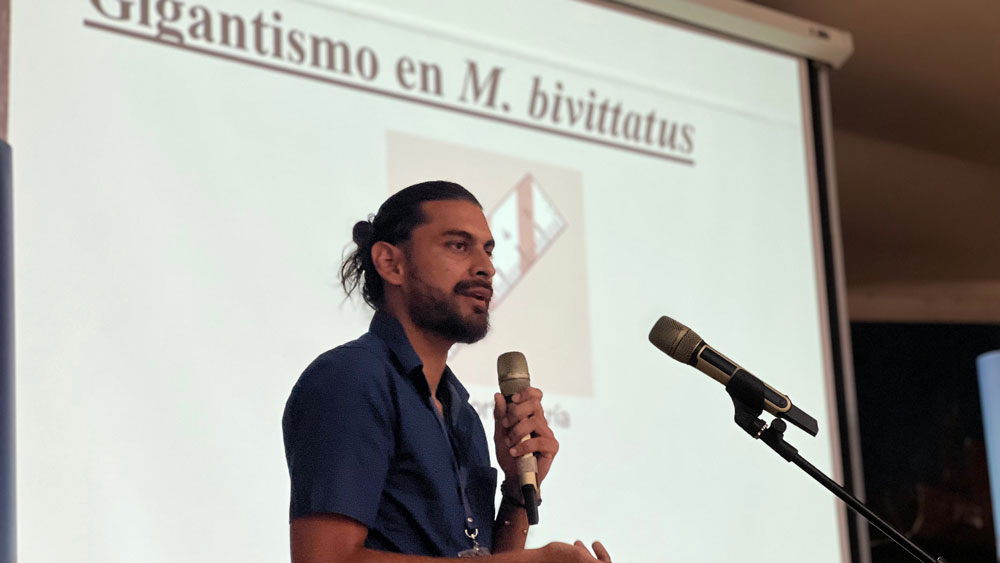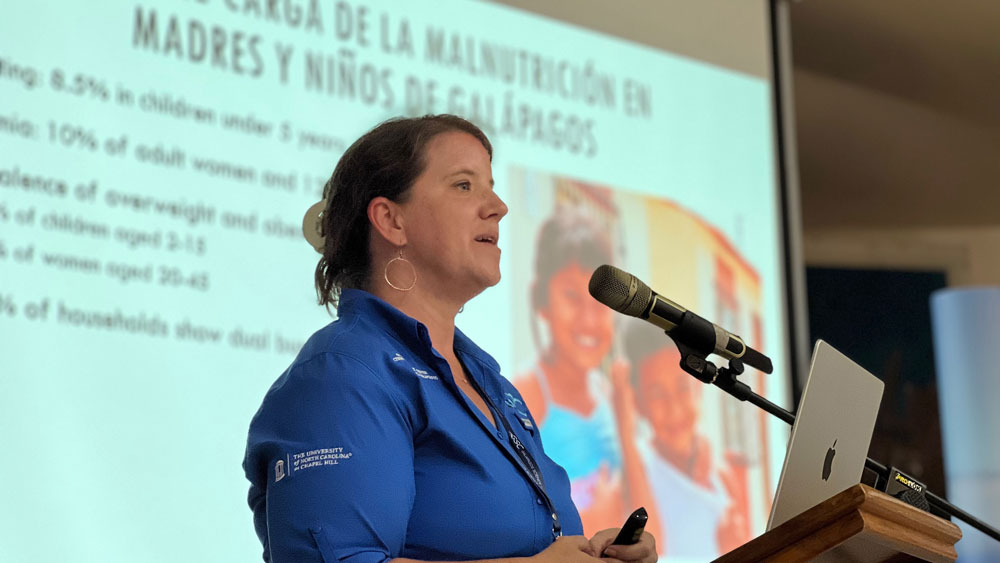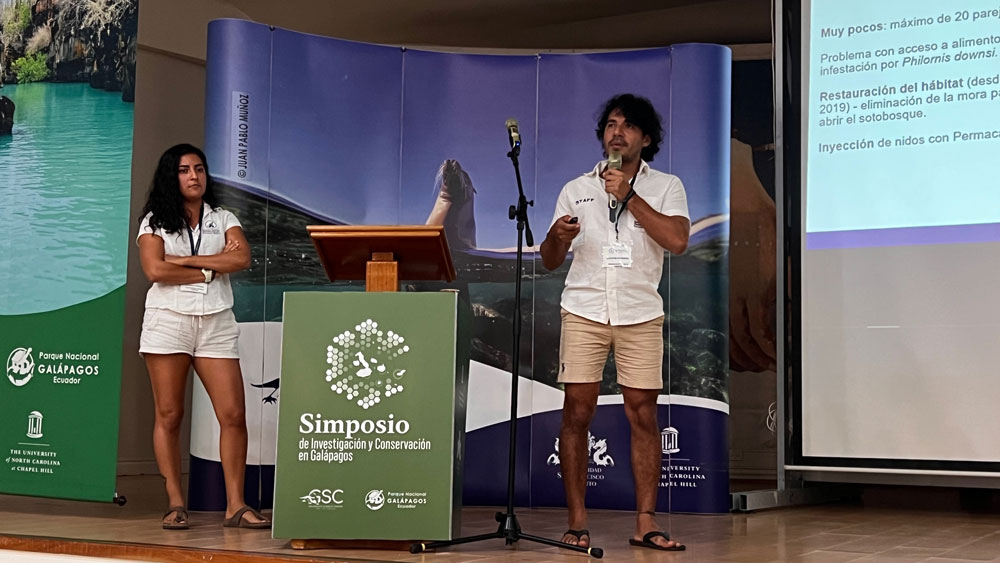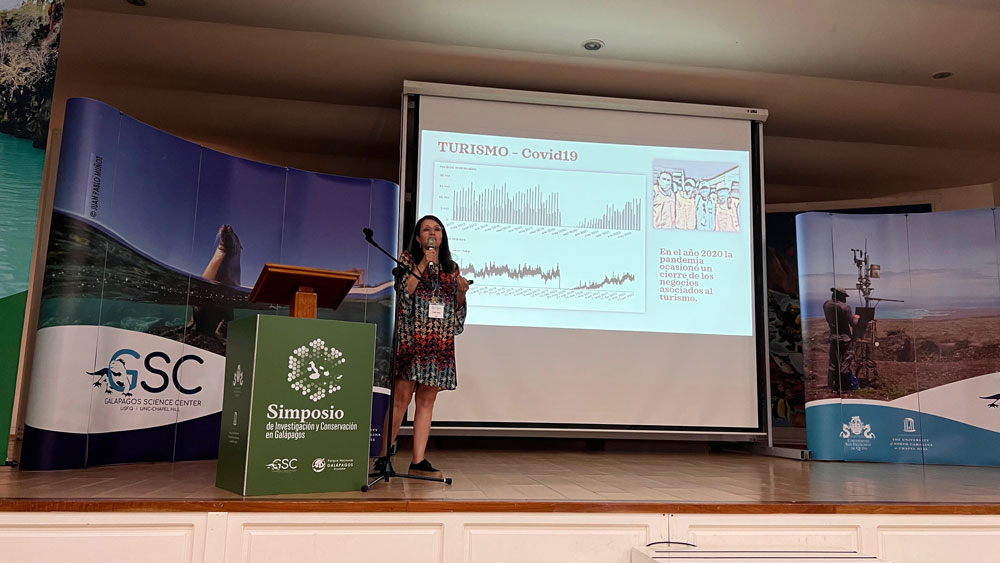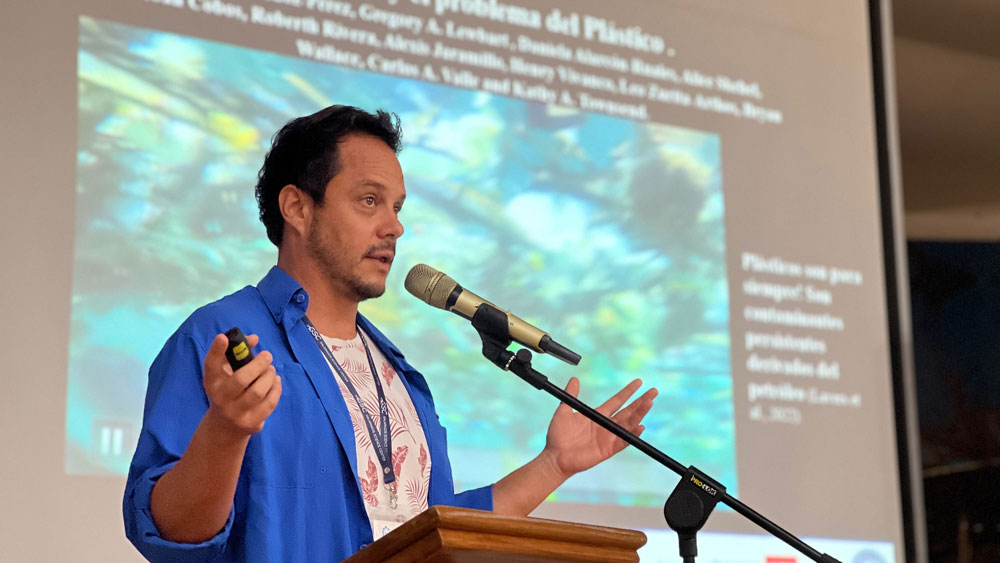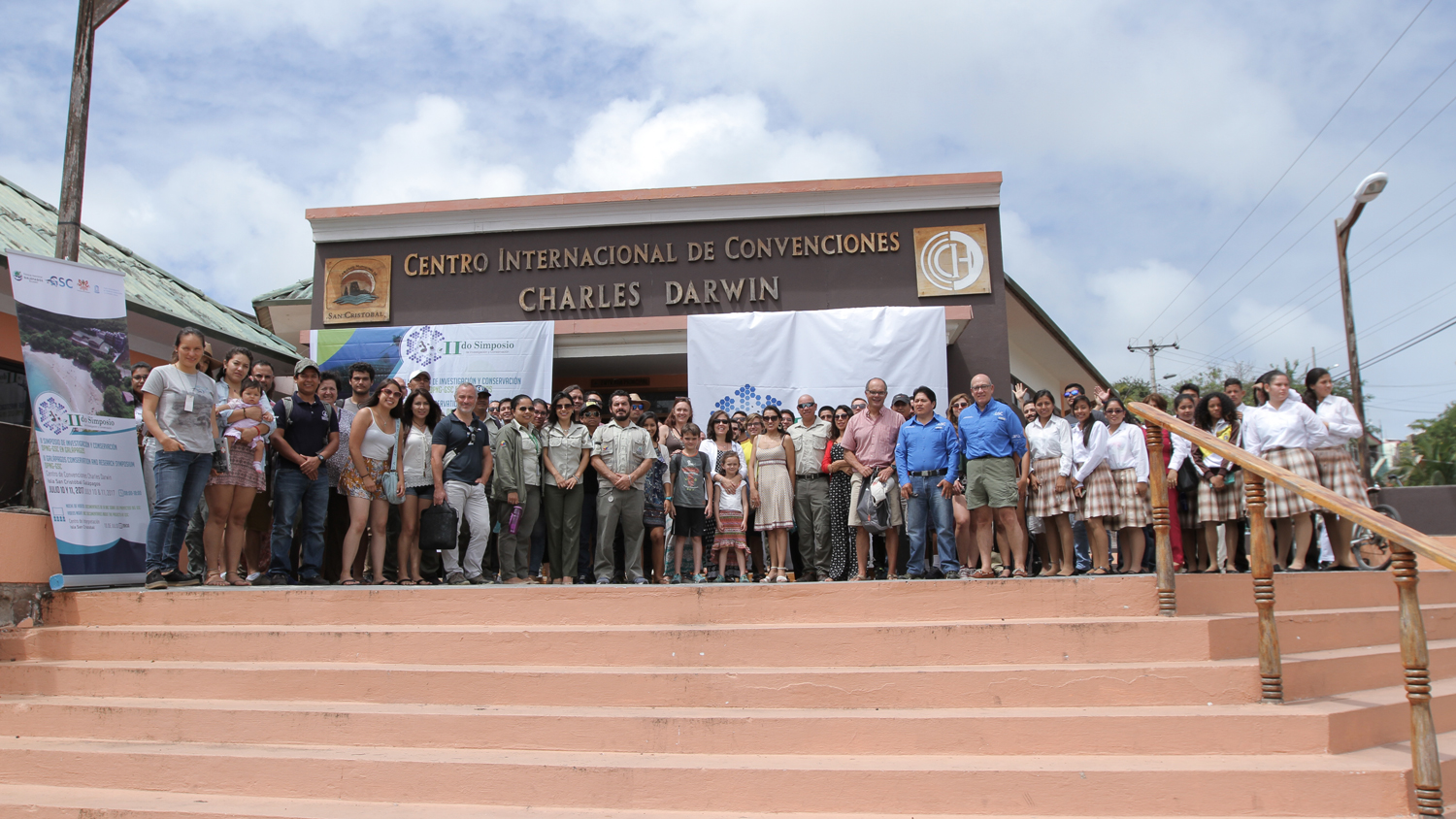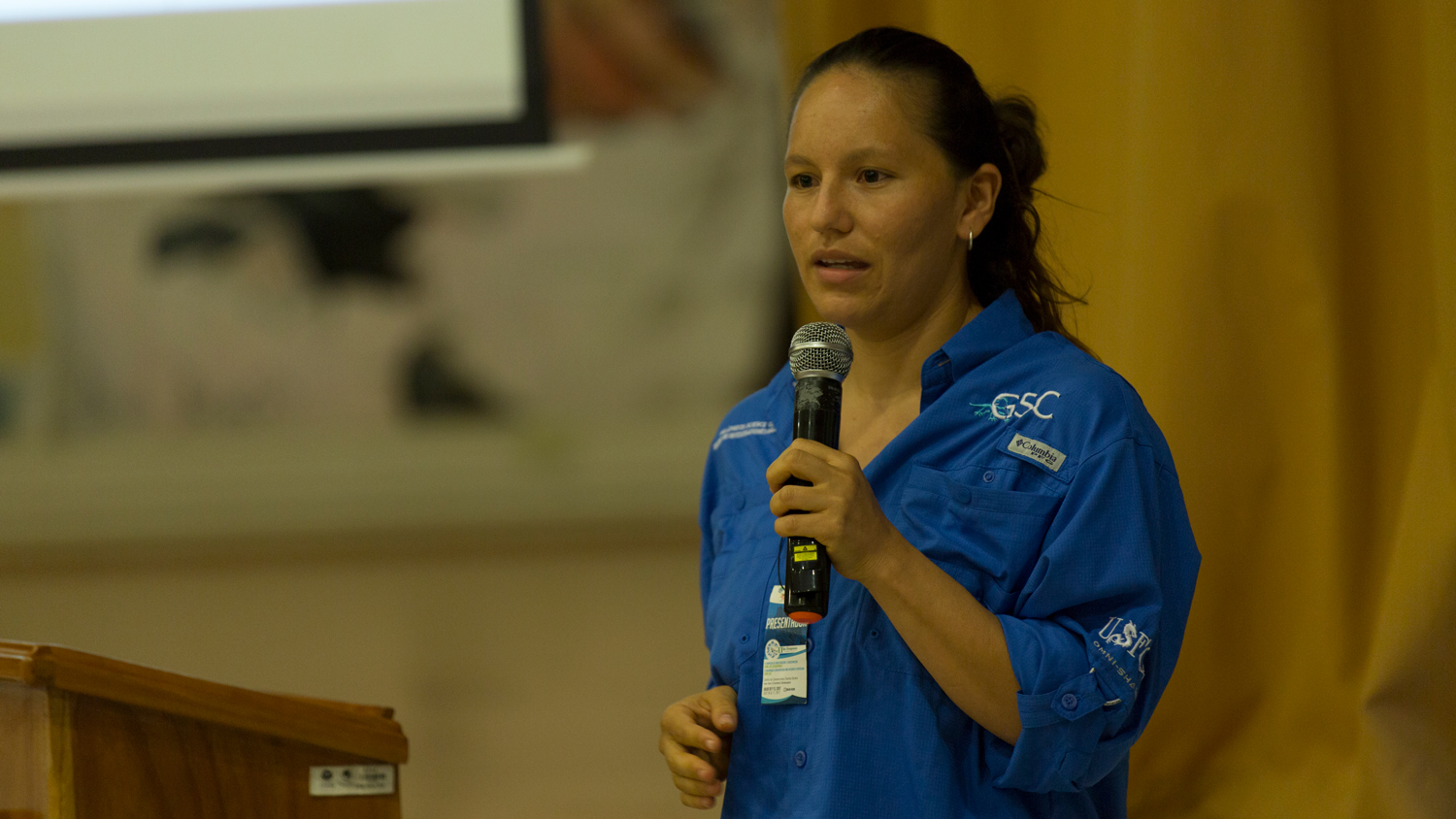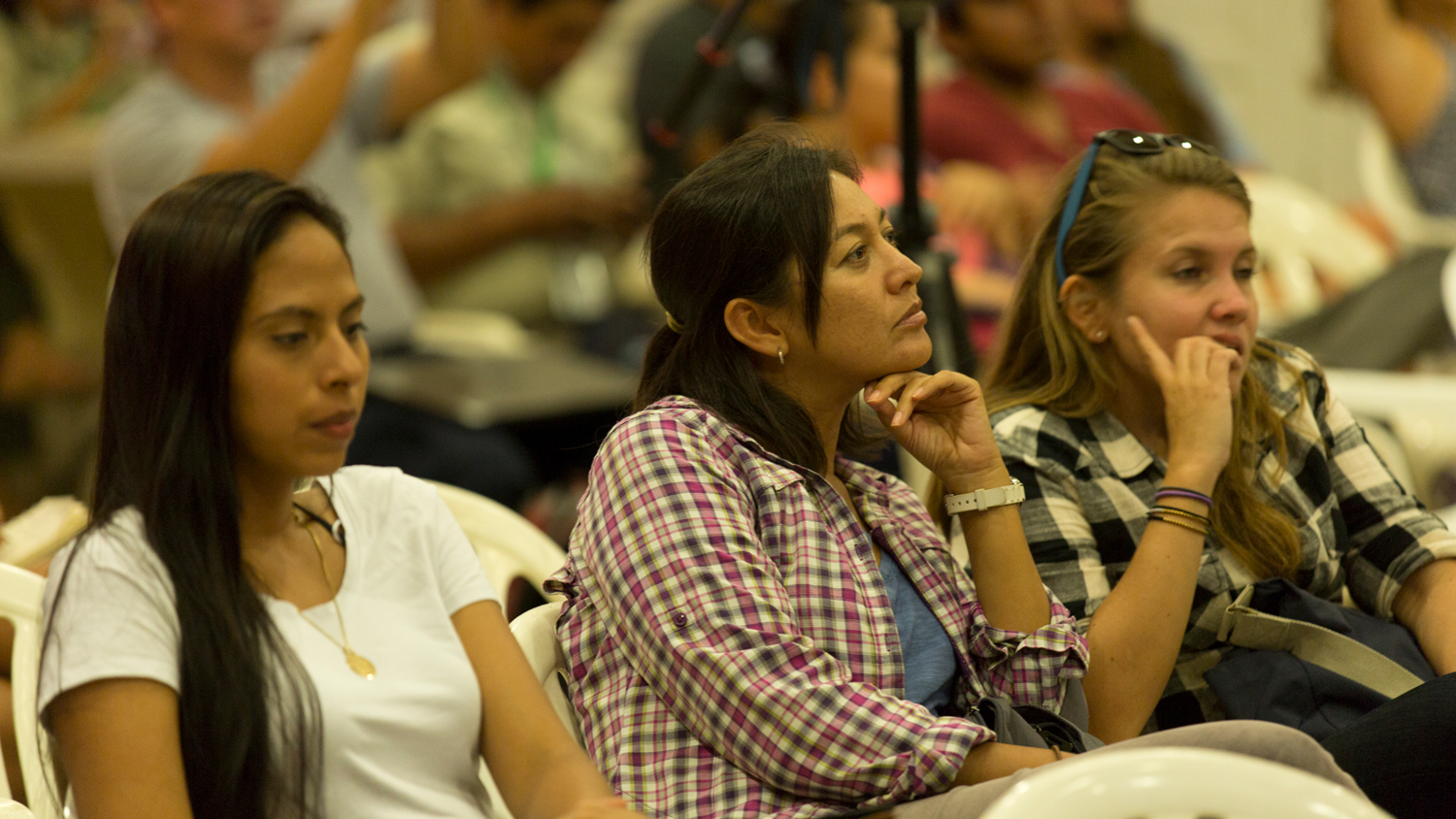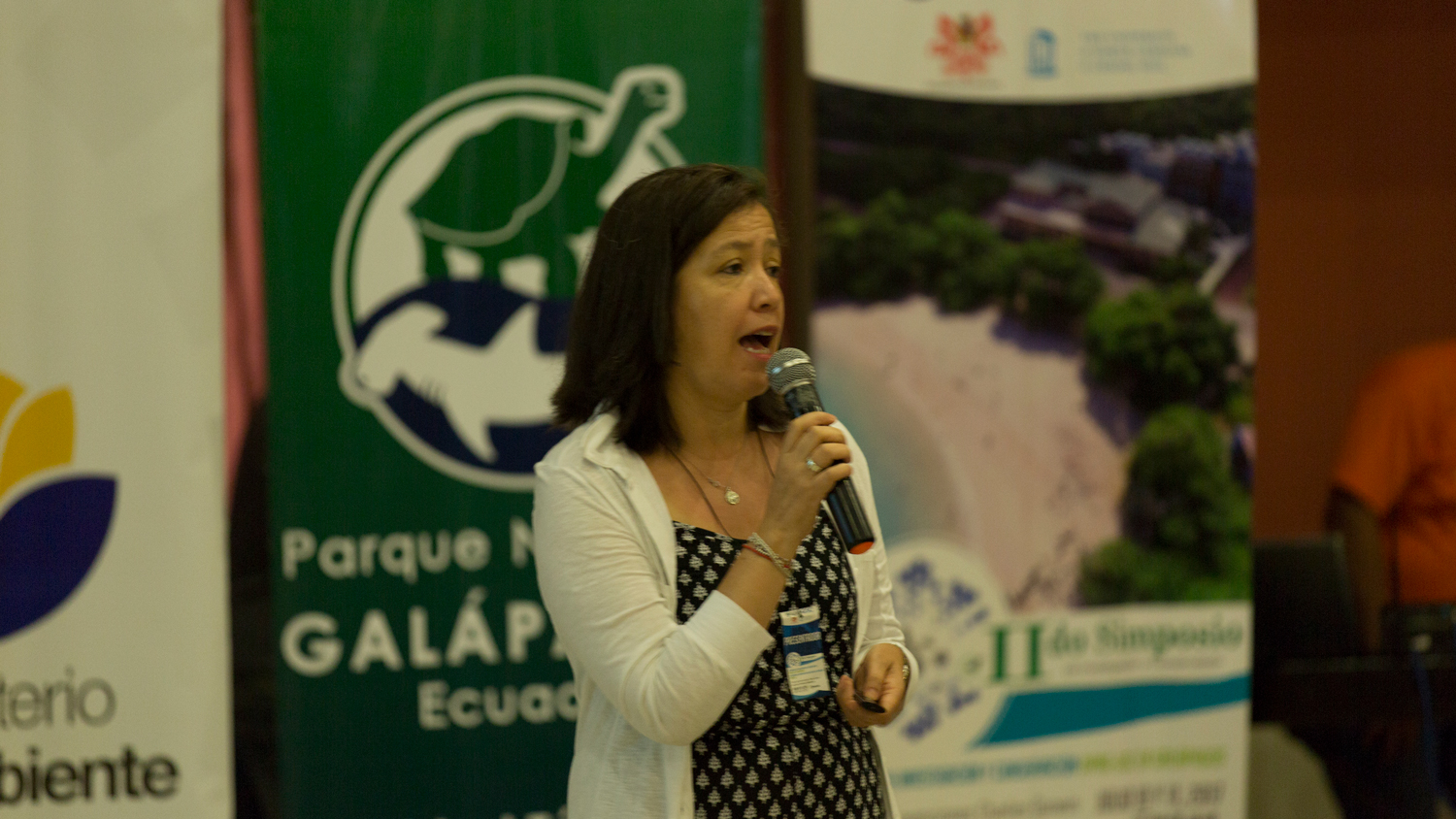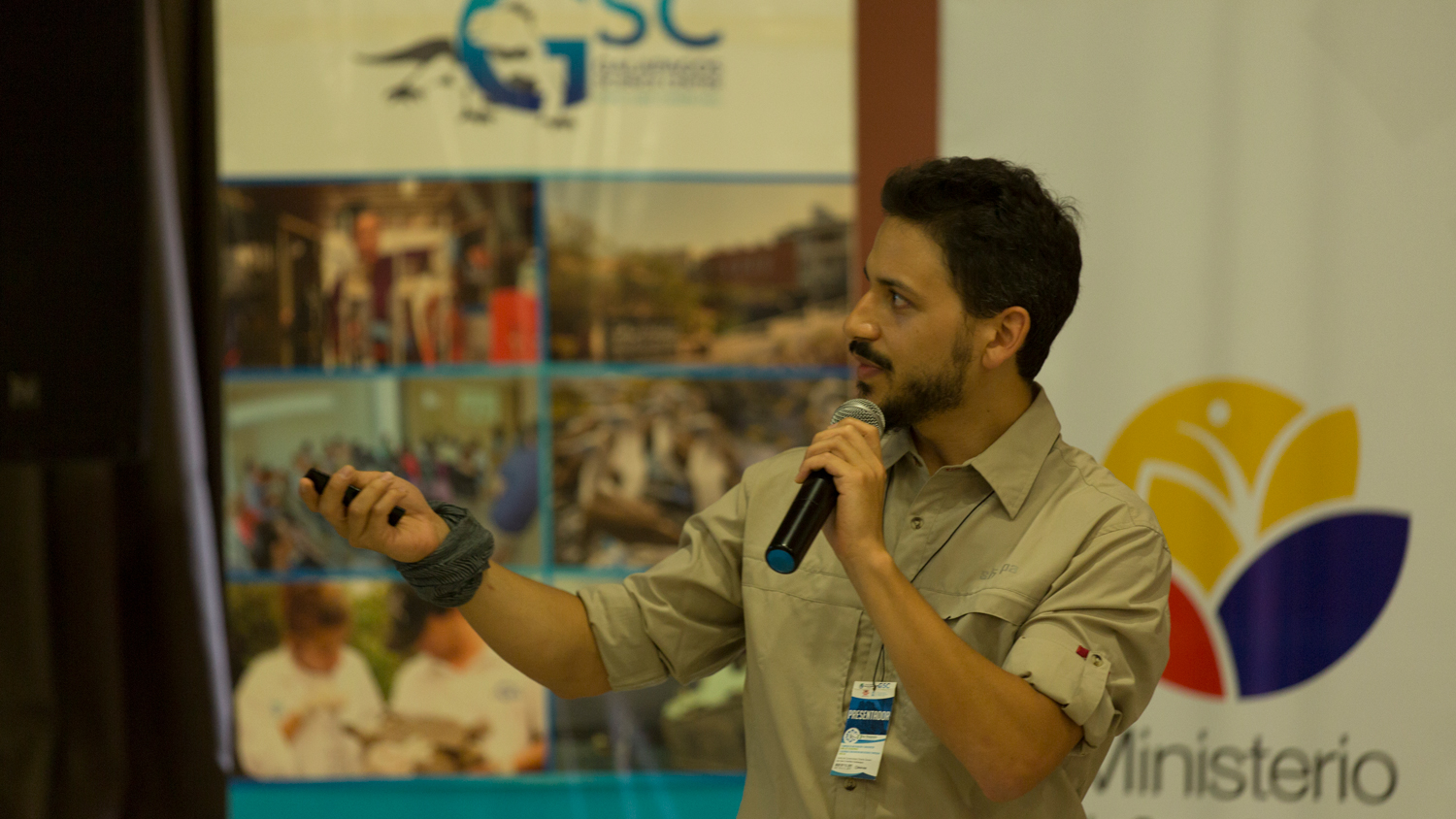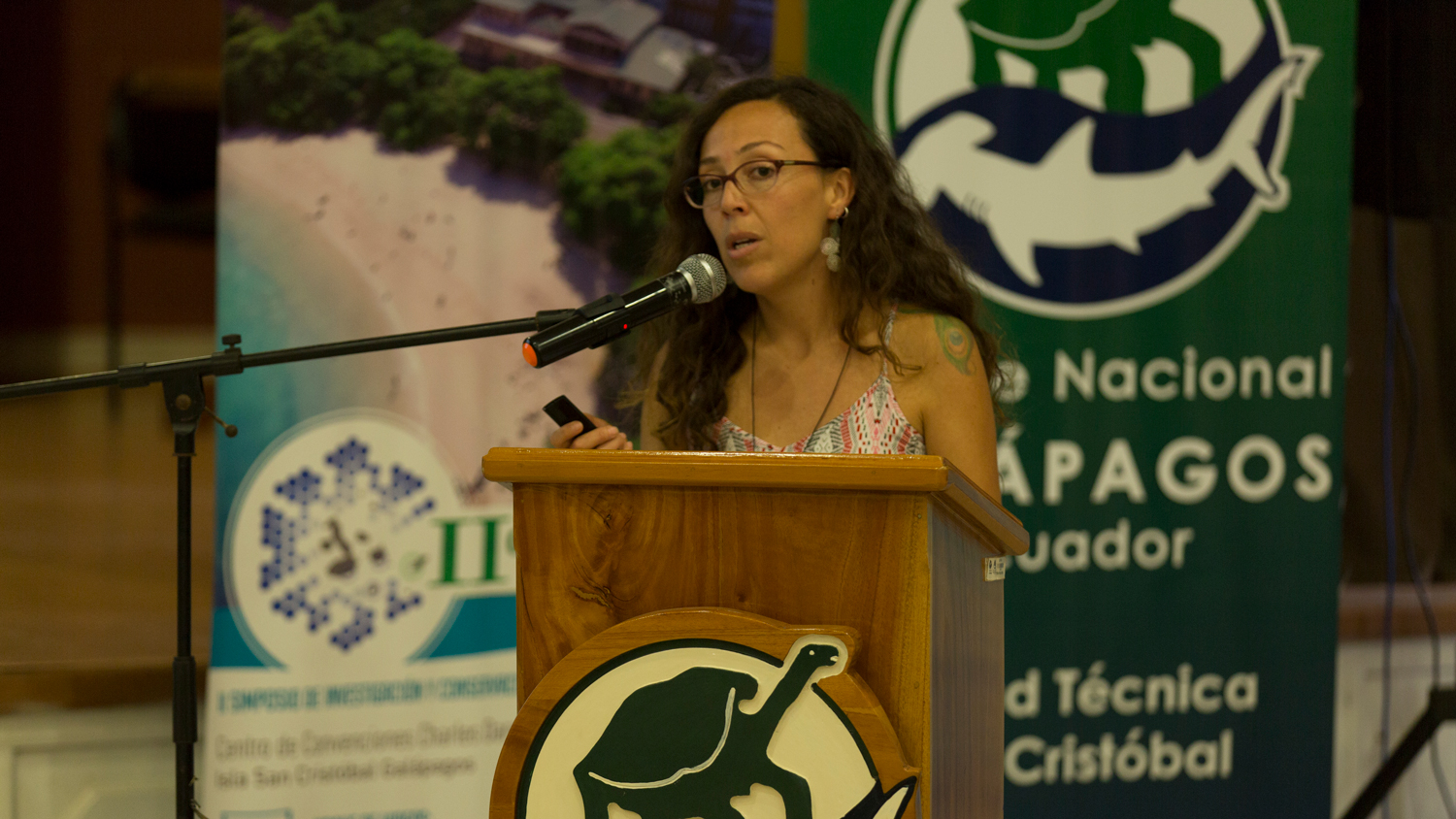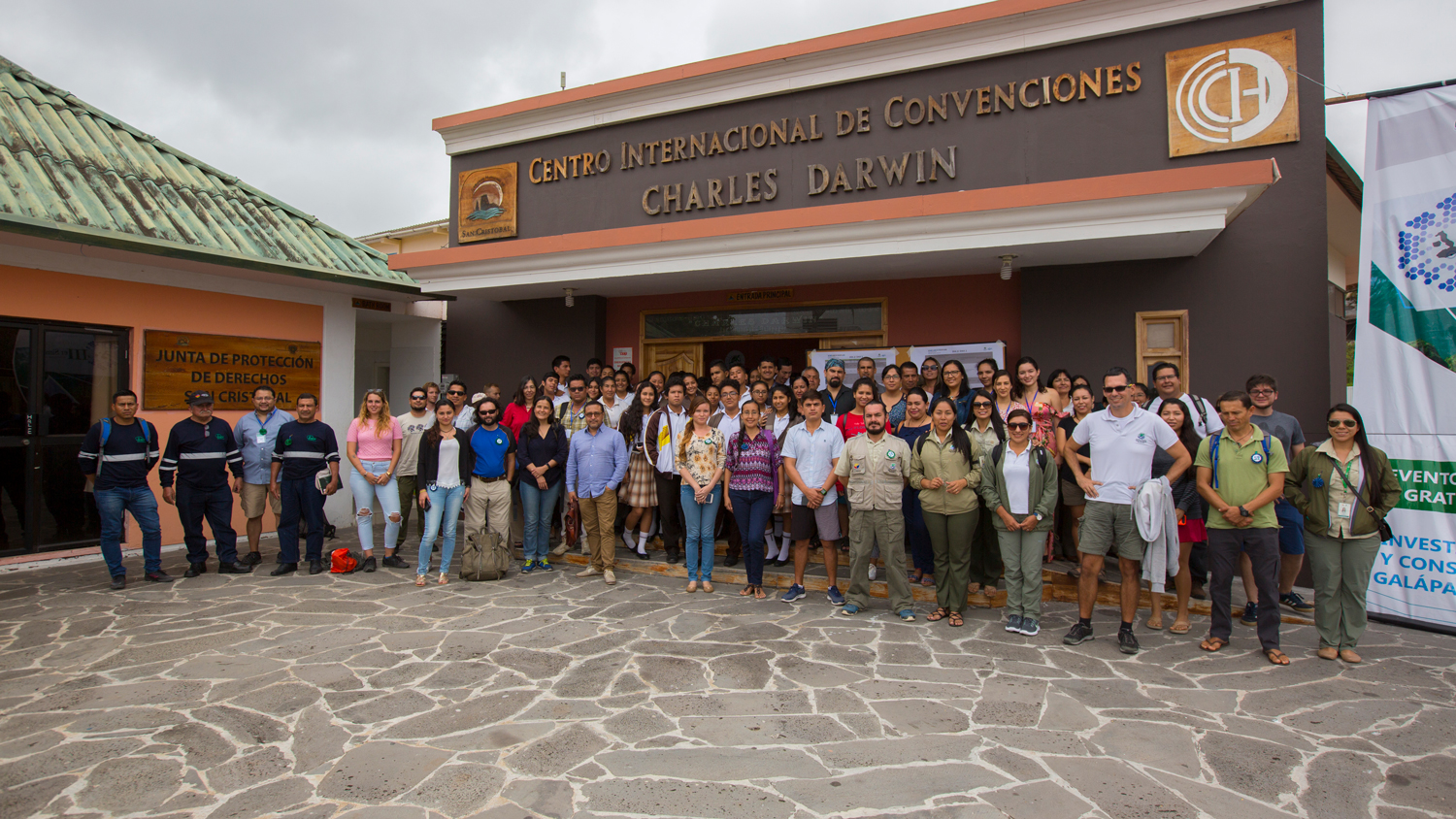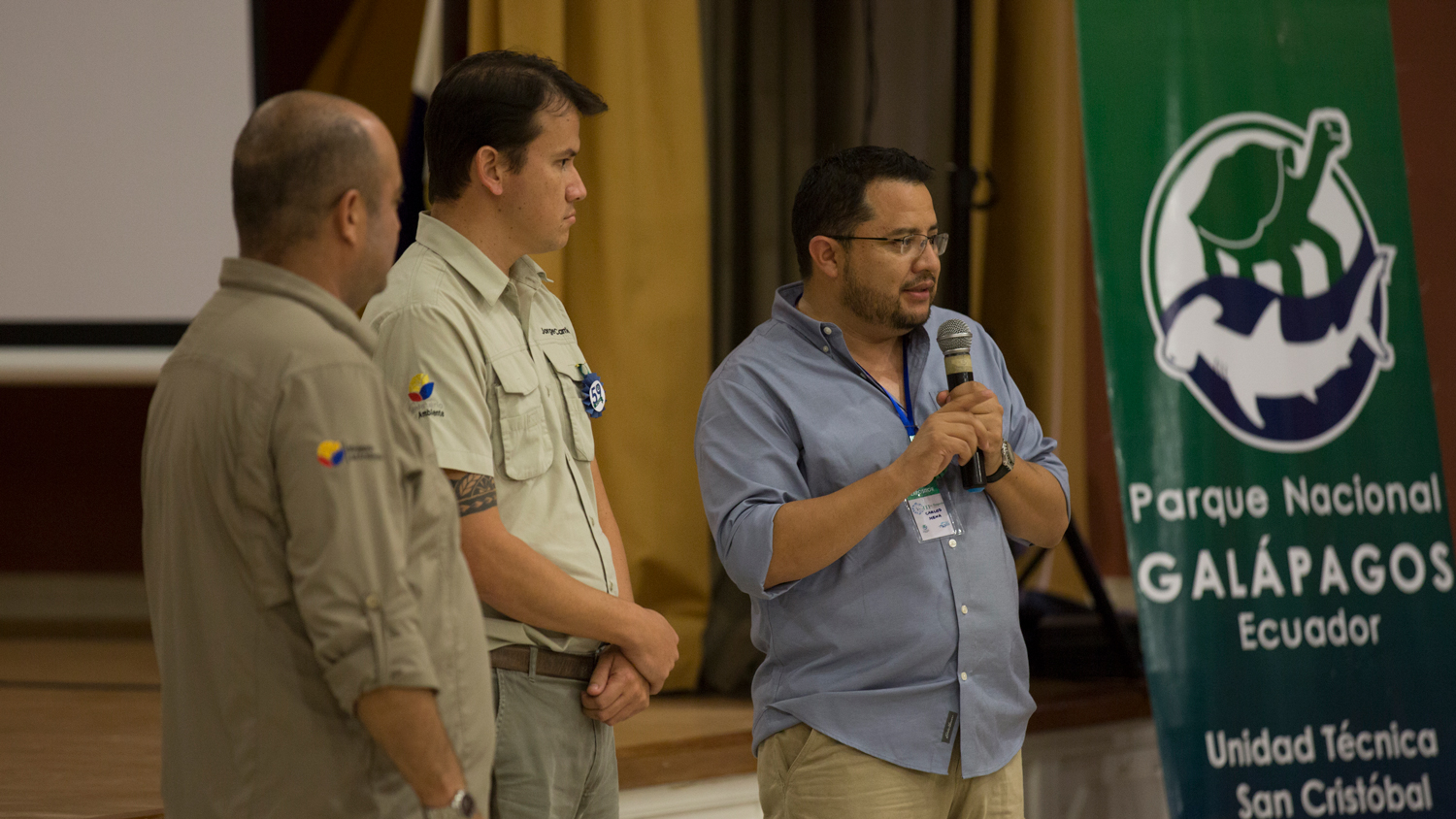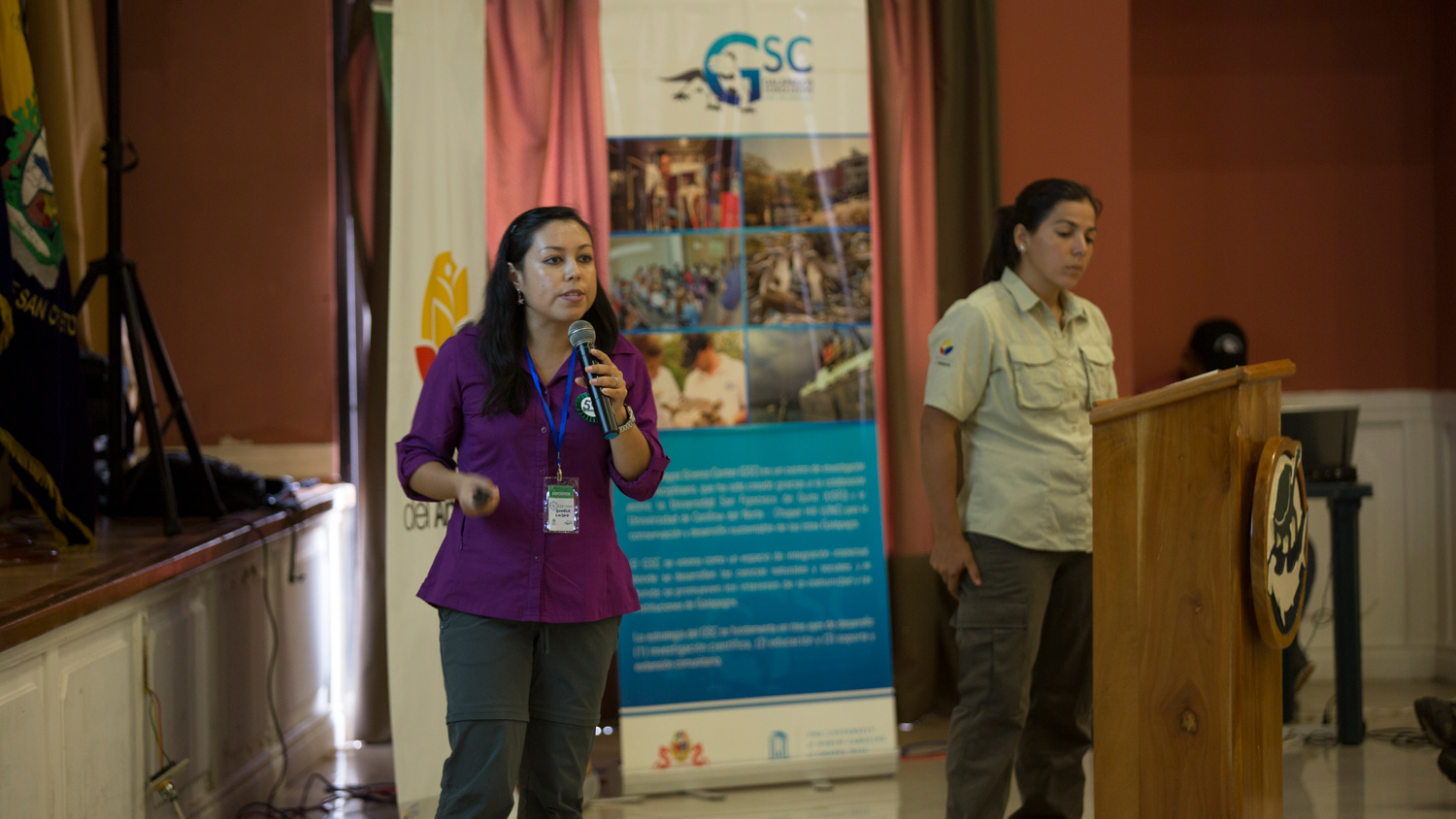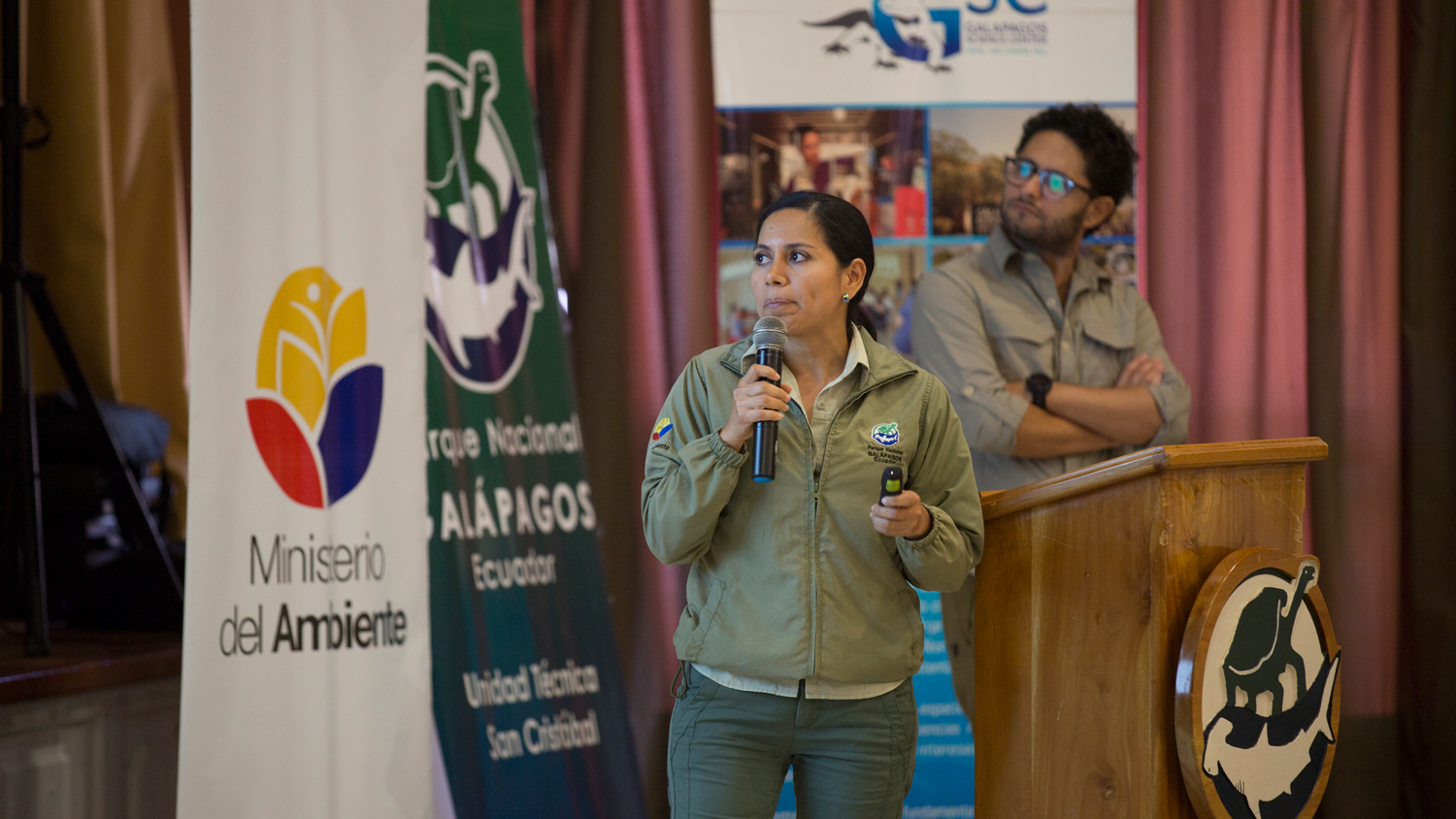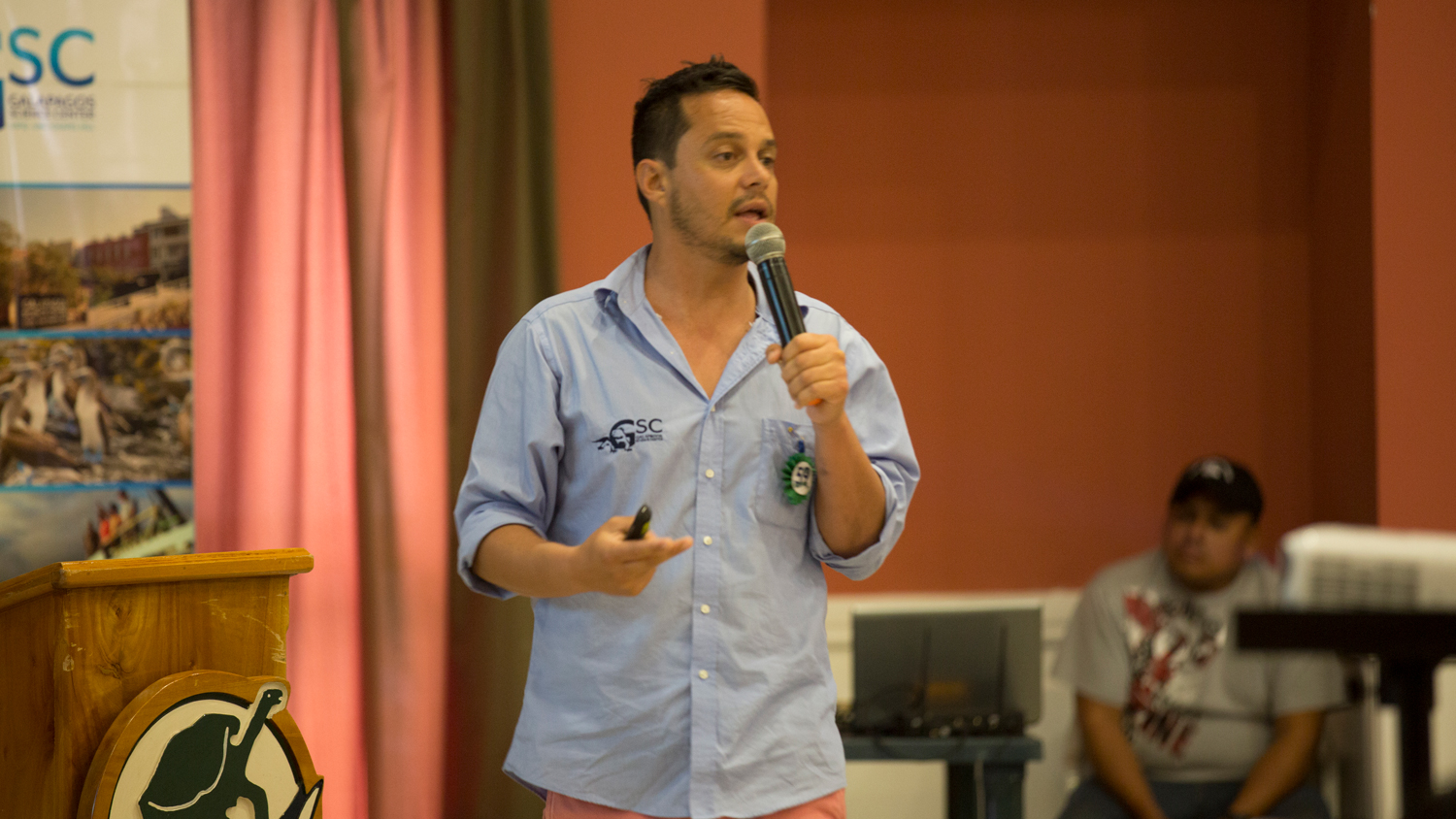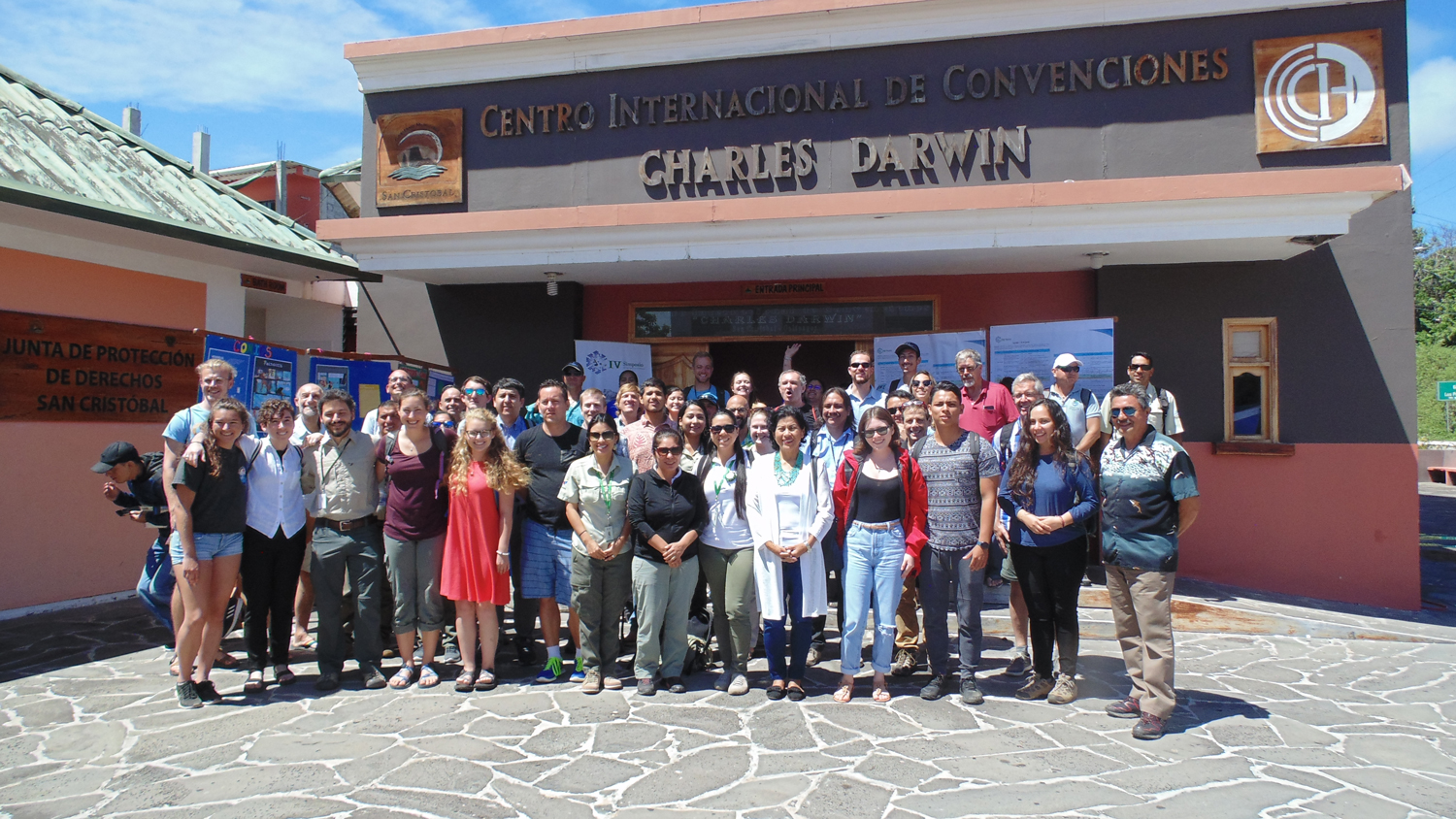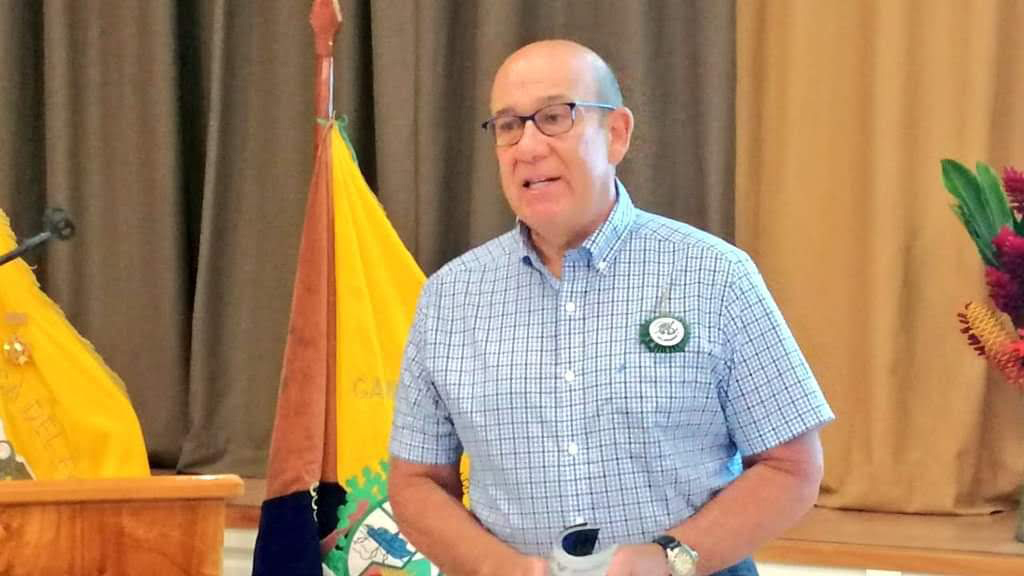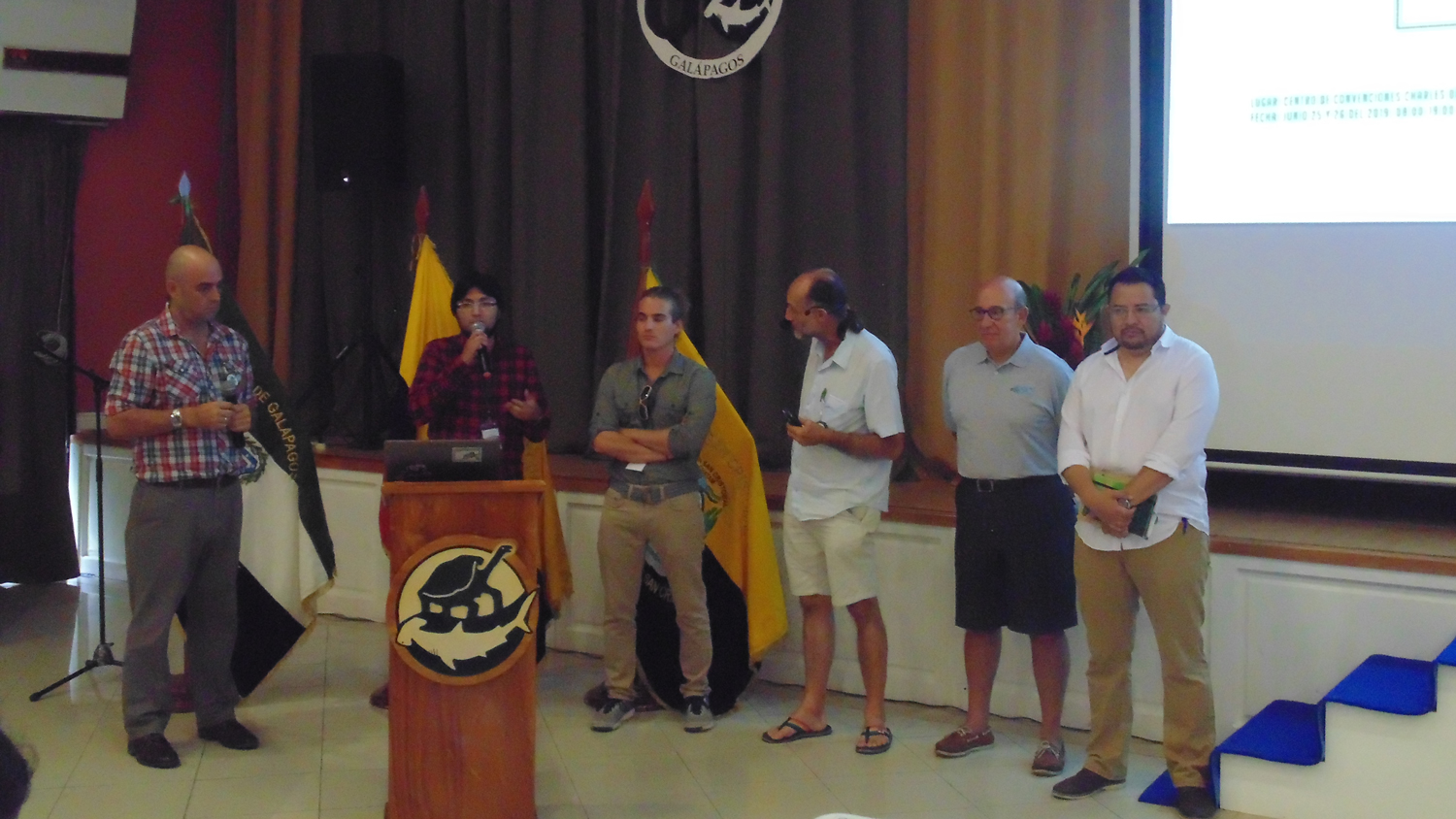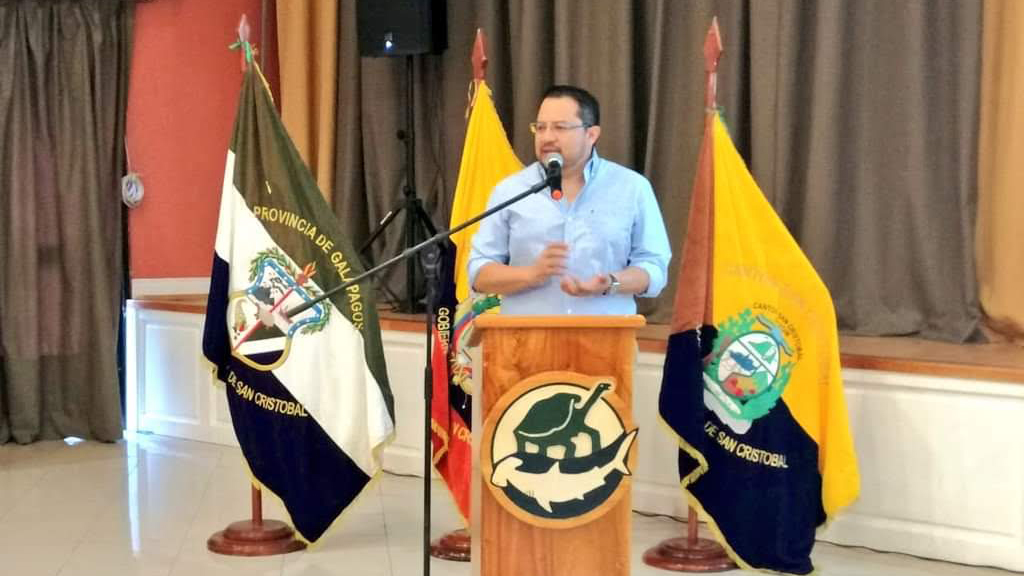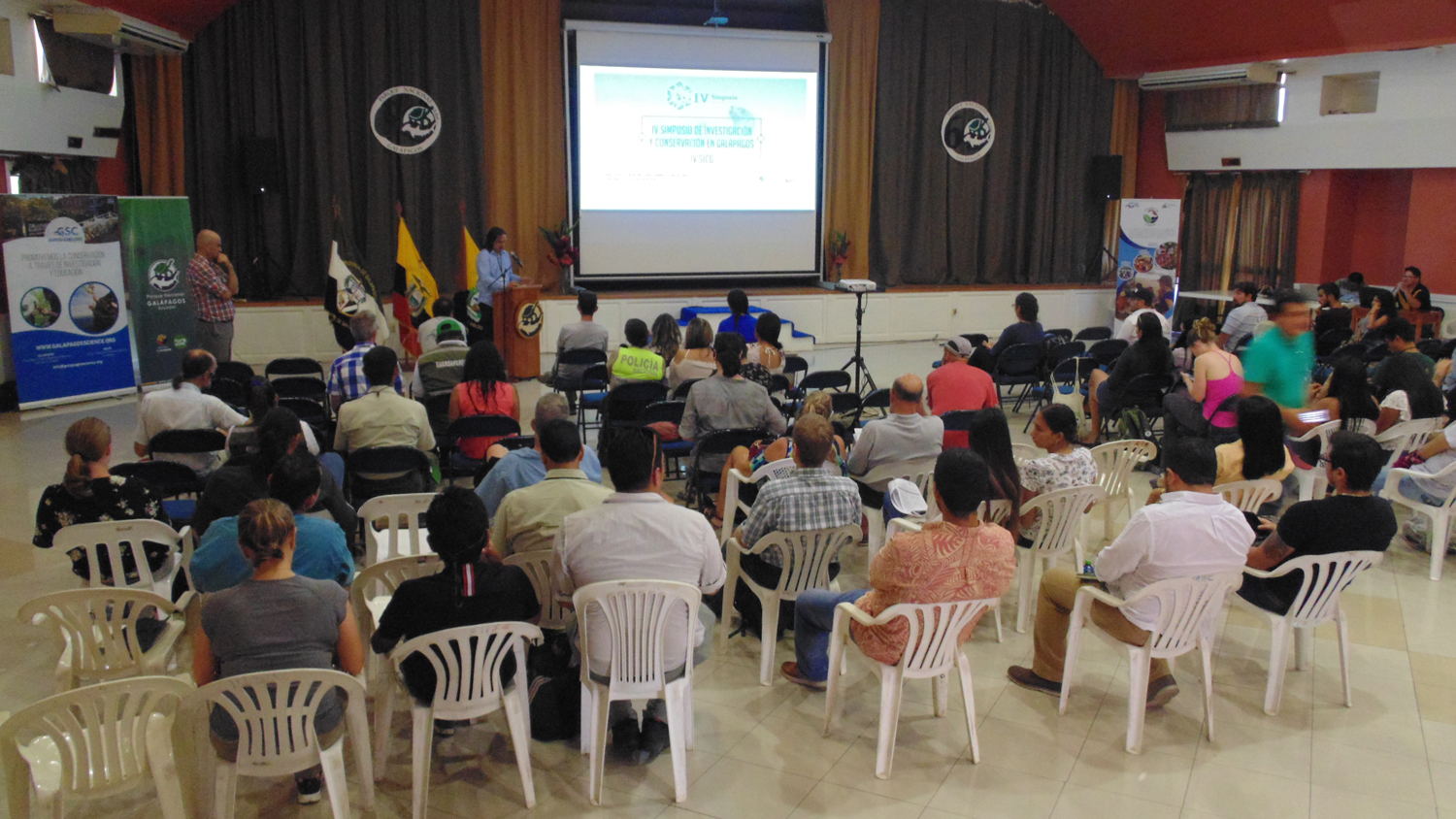6to Simposio de Investigación y Conservación en Galápagos

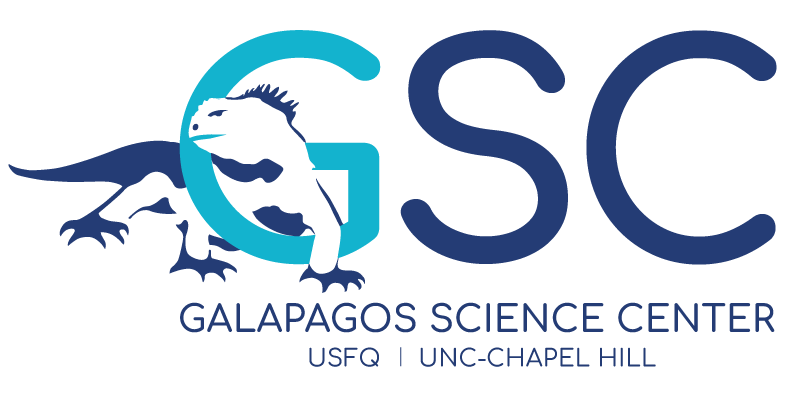


Puerto Baquerizo Moreno, en la isla San Cristóbal, fue la sede del VI Simposio de Investigación y Conservación en Galápagos. Este importante evento multidisciplinario, que se llevó a cabo los días lunes 15 y martes 16 de julio de 2024 en el Centro de Convenciones Charles Darwin, fue organizado por el Galapagos Science Center gracias al auspicio de la Universidad de Carolina del Norte en Chapel Hill y la Universidad San Francisco de Quito, y con el aval del Parque Nacional Galápagos.
El objetivo principal del simposio fué compartir información sobre la investigación científica que se desarrolla en las islas Galápagos, incluyendo metodologías aplicadas, resultados actuales y futuros pasos. Durante el evento, se presentaron 40 charlas centradas en investigaciones e iniciativas relacionadas con la conservación, el cambio ambiental, la biodiversidad y los océanos, así como temas relacionados a la comunidad y la salud de la población local.
Además de las ponencias científicas, el simposio ofreció actividades de networking, como un panel de discusión sobre “Seguridad Alimentaria” y una sesión de pósters, donde los asistentes pudieron profundizar en los temas y realizar preguntas directas a los panelistas.
Los expositores son investigadores activos en Galápagos, con amplias redes de colaboración y un fuerte compromiso con la formación de la próxima generación de investigadores del archipiélago. Esta reunión ofreció una oportunidad única para que los participantes colaboren en proyectos, y creen nuevas alianzas y redes nacionales e internacionales, vitales para el éxito de la conservación.
El simposio también buscó promover la participación de la comunidad, tanto como expositores como audiencia. Esto permite a las autoridades comprender de primera mano las necesidades e inquietudes de la población, proporcionando insumos valiosos para la toma de decisiones. Este espacio informa a la comunidad galapagueña sobre el especial y único ecosistema en el que viven, así como sobre los retos ambientales y de salud pública a los que se enfrentan.
¡Ayúdanos a mejorar!
Por favor llena la encuesta, toma solo 5 minutos.
¡Gracias!
HISTORIA
El Simposio de Investigación y Conservación en Galápagos nació en el año 2016, con el principal objetivo de reunir a los científicos del Galapagos Science Center y la comunidad galapagueña para fomentar la discusión, el intercambio de ideas y los esfuerzos de carácter científico o relacionados con la conservación de ecosistemas y poblaciones insulares vulnerables.
Conoce más en las memorias de los eventos anteriores:
2023 – Memorias del 5to Simposio de Investigación y Conservación en Galápagos
Proceedings of the 6th Galapagos Conservation & Research Symposium
2019 – Memorias del 4to Simposio de Investigación y Conservación en Galápagos
Proceedings of the 4th Galapagos Conservation & Research Symposium
Proceedings of the 3rd Galapagos Conservation & Research Symposium
2017 – Memorias del 2do Simposio de Investigación y Conservación en Galápagos
Proceedings of the 2nd Galapagos Conservation & Research Symposium
2016 – Memorias del 1er Simposio de Investigación y Conservación en Galápagos
Proceedings of the 1st Galapagos Conservation & Research Symposium
Mira los videos de los eventos anteriores:


